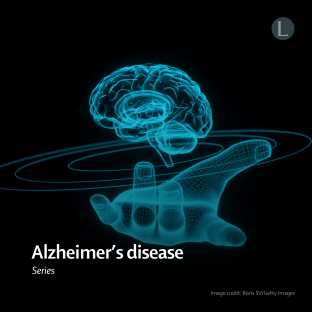On 23 September, the Lancet (The Lancet Group) launched a series of three scientific papers on the current Alzheimer's disease (AD) landscape and the future to come in diagnosis and treatment, in an event held at Hôpitaux Universitaires de Genève and online. The series, developed by 40 leading experts from 14 countries, are calling for rapid reform in healthcare systems, public policy and societal attitudes, in order to fully realise the potential of ground-breaking new medications.
The first paper in the series outlines the typical patient journey and diagnostic workflow for cognitive assessment and biomarker-based diagnosis of AD in a memory clinic. It highlights the integration of biomarkers in clinical settings, which facilitates diagnosis.
The second paper provides practical guidance on how to prioritise pharmacological and non-pharmacological strategies to ameliorate cognitive impairment and behavioural and psychological symptoms of dementia. It discusses the current approval status of monoclonal antibodies, their potential to improve patients' quality of life and how they could be seamlessly integrated with existing best care options.
The third paper presents a novel comparison, indicating that new monoclonal antibody treatments can slow AD progression to a level comparable to the efficacy of medicines for cancer, rheumatoid arthritis and multiple sclerosis. However, the authors say that differences in age, patient outcomes and side effects should be treated cautiously. Encouragingly, improvements in the prevention of AD are also on the horizon, with emerging Brain Health Services identifying people at a high risk for developing the disease and providing them with personalised treatment programmes.
The authors of the series call for coordinated global action so that the rapid pace of science advancement in the field of AD is matched by reforms at the level of healthcare providers, policy and society.
Lead author of the Series, Professor Giovanni Frisoni, University of Geneva (Switzerland), says: “Blood tests, biological drugs for Alzheimer's disease, and prevention interventions are propelling care into entirely new and exciting territory. However, the old needs of patients will not disappear. On the contrary, more general practitioners and dementia specialists will need to master the less glamorous but steady advances made in the past few decades in the care and treatment of behavioural disorders, the use of sophisticated diagnostic imaging and laboratory tools, and psychosocial care. A concerted societal effort in this direction will enable our current and future patients to benefit fully from the potential of scientific and technological advances.”
You can access the Series here: https://www.thelancet.com/series-do/alzheimers-disease.
